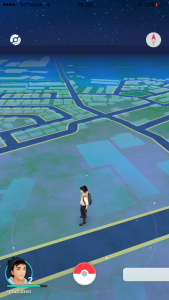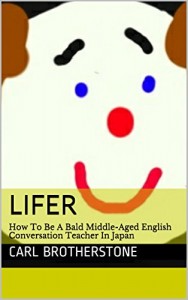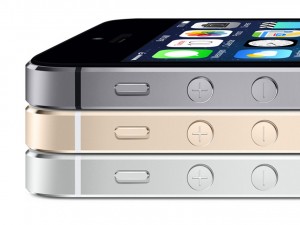Pokemon Go in Japan
Sadly I have failed to ‘catch them all’
Okay, so Pokemon Go finally came out here today. All my university students were talking about it in the afternoon, so I downloaded the app and tried it out on the way home.
My verdict: it’s okay. Probably not as good as Ingress (the previous game by Niantec, which I got fairly into) but okay. I don’t think I am going to get into it.
Ingress is a sci-fi themed strategy game. It overlaps the game onto the real world, just like Pokemon Go does, but I think the game play works better. Pokemon Go also incorporates augmented reality, where the game overlaps the monsters onto the real world using the camera. It’s cool at first, but basically a gimmick.
Nevertheless, it’s going to be huge. That’s the power of the Pokemon brand.
But I think it also shows how games are going to develop in the future: more inventive, more integrated with the real world. The good thing is that it’s going to get players out walking around in the real world.
Anyone enjoying Pokemon Go?
REVIEW: Lifer, How to be a Bald Middle-aged Conversation Teacher in Japan
I’m really pleased to kick off 2015 proper with a review of Lifer: How to Be a Bald Middle-Aged English Conversation Teacher in Japan. Based on the blog of the same name, it is written by the teacher behind Good and Bad Japan, a whimsical look at daily life here.
I think Carl must be a bit like me, because I suggested he turn his hilarious blog into an ebook years ago, and it’s only just come out 🙂
Lifer is probably the best book I have read about teaching English in Japan. Most of the time I could imagine that he was writing about my life, as I have lived many of the scenes in the book. A lot of the time it is laugh-out-loud funny, but the best thing about it is the author’s love of Japan and teaching that shows through the cracks in the anecdotes.
Please buy a copy immediately if you teach English in Japan or are considering doing so -not only will you enjoy it immensely and probably learn some things, but if it does well enough Carl may even get around to writing a sequel.
blogging facebook goals life in Japan: delete facebook facebook productivity time management
by sendaiben
9 comments
So long, and thanks for all the likes
This isn’t the first time I have walked away from Facebook, or at least tried to. Unlike this essay, I don’t think the internet is the best place to live your life.
There is a lot to like (ha ha) about Facebook. It does provide a community, something that is particularly important here in Japan as it can get lonely otherwise. It allows you to keep up with people that you don’t see often and probably wouldn’t think to call or email.
In its pure form, I would probably have kept my account. However, Facebook has made a number of important changes recently that really degraded the experience for me:
- not showing all my friends’ posts
- not showing things in chronological order and bringing posts back to the top every time someone likes or comments on them
- showing things my friends like or comment on
- showing ads that have some tenuous link to a friend
- not showing all posts from pages or communities
- not sending posts from pages to more than 10% of the community without payment
- co-operating with the NSA
- the new microphone listen function on phones
Facebook is also a time-suck, and was starting to get in the way of things I would rather be working on. At the end of the day I get much more pleasure out of writing something on this blog, or an article, or reading a book, or meeting someone for coffee than by hanging out on Facebook.
I’m going to keep my account for now (for the pages) but I have unfriended everyone except my wife and don’t plan to use the account in a personal capacity again. We’ll see how long I last this time 😉
How about you? How do you view your Facebook usage?
iPhone 5S in Japan
So we have a new iPhone coming out today, one that has finally achieved full market penetration -it will be available on all three major networks in Japan.
I have owned two iPhones (a 3GS back in the day, and a 4S that I’m using at the moment). I will have paid off the 4S in a couple of months, so have been thinking about upgrading.
I’m on Softbank, and they are running at least two special deals that may affect this decision:
1. they will pay off any remaining payments on an iPhone 4 or 4S if you upgrade to one of the new phones
2. they will set your monthly data charge at 4,500 yen for a year (a saving of 1000 yen or so off the standard rate for the LTE network)
3. they will buy back your phone (I think mine is worth about 14,000 yen according to their program)
Hmmmm.
Another factor is that I upgraded my 4S to run iOS 7 yesterday, and so far I am very happy with it. The battery seems to be holding up fine, it runs fast and does everything I want it to. I really like the new operating system, and it seems to be happy on my old phone.
The new iPhone 5S has had some pretty good reviews, and is technologically interesting, but basically is not going to improve my life. The only thing it does that my current phone does not is provide an internet hotspot (like the iPhone 5).
Doing some rough calculations, upgrading to a new phone is more or less cost neutral, at least for the first year or so. After that it will cost me about an extra 2000 yen a month.
Verdict: undecided. I am going to wait a bit longer and see what the new phones are like. Quite a few people around me are planning to upgrade. I’ll also go in and talk to Softbank and get some accurate numbers off them.
Has anyone got an iPhone 5S yet? Is it worth it?
blogging earthquake expectations life in Japan living in Japan personal refugee
by sendaiben
leave a comment
Shock Therapy: how a geological event helped cement my minimalist leanings
This post was originally written for an ebook project that never happened. I’m happy to publish it here now.
Are you a wannabe minimalist? I was. It took a major natural disaster to change that.
I became interested in a minimalist lifestyle a couple of years ago. It started with Leo Babauta and Zen Habits, and progressed to Karol, Tynan, Baker, and others. It was appealing, and I spent hours reading articles, following blogs, looking at lists of possessions and checking out minimalist workspaces.
I didn’t actually do anything to change my life, but it was fun thinking about it.
I guess I had the desire but not the drive, the talk but not the walk. I suspect this may be very common, with a small core of people actually living a minimalist lifestyle, and a wider circle of spectators seeing the benefit but not taking action.
This all changed in March 2011. I was just getting ready to teach on an ordinary Friday afternoon when the fourth largest earthquake in recorded history hit the city I live in, doing substantial damage in itself and causing a devastating tsunami. Luckily my seven year-old students hadn’t arrived at the classroom yet, so I didn’t have to worry about them being hurt when everything in the room flew five feet sideways, including computers, tables, and bookshelves.
The earthquake lasted for about five minutes, which is about four and a half minutes too long for comfort. We’re used to earthquakes here, but they normally only last a few seconds. This one started, then got stronger and stronger, and everything just kept violently shaking for what seemed like forever.
After it finally stopped, I left the classroom and checked on some of our neighbors, then stood in a nearby park with other members of the community, all of us shocked into silence.
That evening I sat with my family in our large rental house by candlelight, surrounded by electrical appliances that no longer worked, huddling together for warmth under all our blankets and quilts.
The next day we foraged for food. Going through my daughter’s apartment, taking only food and water and leaving CDs, magazines, clothes, TVs, and furniture behind really made an impression on me. Likewise when we found all the shops closed and shuttered. Gas stations, chained up. Didn’t matter how good your credit was, how much money you had in your wallet.
We’re all just a couple of hours away from that.
That night, back at home taking stock, we received a couple of phone calls from friends and family abroad (I have no idea how they got through as the phone network was down) warning us about the unfolding nuclear accident in Fukushima. We live just under 100km away.
I made a quick decision based on a decision matrix taking into account what would happen under each of four scenarios: there were two variables, whether the accident was serious or not, and whether we left or not. The outcomes were, in turn:
1. the accident was not serious, and we stayed put: nothing happens
2. the accident was not serious, and we ran away: somewhat embarrassing and would cost some money
3. the accident was serious, and we stayed put: irradiation and mass panic when people realised what was happening
4. the accident was serious, and we ran away: safety and some monetary expense
There wasn’t much contest. I persuaded my family, we packed our cars, and we set off a couple of hours later, driving through the night and most of the next day until we got to relative safety in western Japan, several hundred kilometers and a mountain range away from the danger zone.
I locked our house and walked away from everything I owned that didn’t fit into a small bag. We got into the car and left forever as far as we knew.
And you know what? I didn’t care about any of it. For the four weeks we spent with relatives in Kanazawa, on the western coast of Japan, not once did I think of an actual thing we had left behind. Family? We took everyone with us. Friends? Yes. Students? Yes. Our stuff? Not once.
Not one piece of clothing, not one gadget, not one room of the (too) large house we rented.
And that’s when I became a real minimalist.
Just over two years after the event that changed everything, we are living in a small apartment (our rental house was structurally damaged and had to be knocked down), I haven’t bought anything physical for months (sadly, ebooks and music still draw my eye occasionally -I am not yet a digital minimalist), and I am consciously reducing the things I have left.
The next time we have to leave in the middle of the night, I’m hoping to be able to take everything with me.




